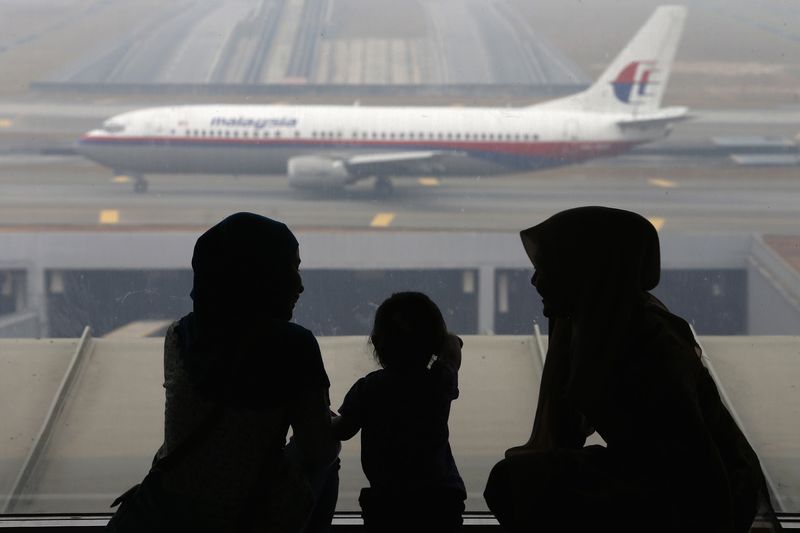By Siva Govindasamy and Praveen Menon
SINGAPORE/KUALA LUMPUR (Reuters) - Two years after twin air crashes that left its brand in tatters, Malaysia Airlines is still a company in limbo.
The loss of two Boeing (NYSE:BA) 777s just months apart in 2014 triggered a much needed state bailout for the already loss-making carrier. It cut a third of its staff, grounded its Boeing 777-200s and scrapped its less profitable long-haul routes.
As a result of those efforts - and low oil prices - the group says it will reach its target to turn a profit in 2018, the same year its German boss, turnaround guru Christoph Mueller, ends a three-year contract.
But some analysts and executives question a bet on a narrow, regional business model they say could leave it struggling to compete with regional rivals.
They say Mueller and his team are not paying enough attention to the airline's long-term strategy, in the face of intense competition from southeast Asian rivals like Singapore Airlines (SI:SIAL), Garuda Indonesia (JK:GIAA) and Air Asia (MK:AIRA) - particularly if the airline continues to haemorrhage pilots, engineers and mid-rank managers.
"Apart from shedding jobs, cutting its fleet size and renegotiating vendor contracts, it would appear nobody envisions what the airline might look like in 10 years’ time," said Shukor Yusof, founder of Malaysia-based consultancy Endau Analytics.
Malaysia Airlines was struggling with a high cost base and low yields even before 2014, but its troubles deepened after March that year, when flight MH370 disappeared en route from Kuala Lumpur to Beijing with 239 people on board. In July 2014, Flight MH17 was shot down by a surface-to-air missile over Ukraine, killing all 298 on board.
APRES MOI?
In December 2014, Malaysian state-owned sovereign wealth fund Khazanah took the airline private as part of a 6 billion ringgit (1.03 billion pound) restructuring plan. Mueller, 54, was brought in as the airline's CEO in May 2015 on the strength of his experience turning around Ireland’s Aer Lingus (IR:AERL), Belgium’s Sabena, and Germany's Lufthansa (DE:LHAG).
Some of the operational changes Mueller has implemented are starting to show results: on Friday, the company released data showing revenue per available seat kilometre, an industry measure of efficiency, up 10 percent from the previous quarter.
But that may not be enough, senior executives warn.
"Khazanah must push Christoph and his team to do something about this if they want to secure the airline’s future beyond his three-year contract," said one. The executive was not authorized to speak to the press.
A second executive also called for greater ambition, arguing against "too much short termism" in the overhaul plan.
On Friday, the airline announced that its latest cost cuts included renegotiating contracts with leasing companies, reducing the number of suppliers, and implementing a new IT system.
The cuts so far have included a dramatic shrinking of the airline's network: over the last year, it has cancelled all non-stop flights to Europe except those to London and ended several low-yield Asia Pacific services.
It is instead concentrating on short- and medium-haul flights to Asia and Australia. It has signed a codeshare agreement with Gulf carrier Emirates to give its passengers access to points in Europe and Africa through Dubai.
That, argue some executives and analysts, may leave it sitting uncomfortably between full service rivals and local budget competitors like AirAsia and AirAsia X.
As a smaller full-service airline without a large network, it won't be able to compete effectively with other full service hub carriers in the region, they say.
But it will also have to compete with Malaysian budget carriers AirAsia (KL:AIRA) and AirAsia X (KL:AIRX), which have a similar point-to-point network, lower cost base and can offer cheaper ticket prices.
In a written statement to Reuters, Malaysian Airlines said its business plan took "a long term view of the airline’s strategy with a distinct focus on cost competitiveness in the short term and a clear ambition for expansion after reaching break even. It is clearly the national carrier’s role to support the Malaysian economy to enhance connectivity in the rapidly growing markets in Asia Pacific and beyond."
A planned rebranding has been put on hold. The company, explain some executives and analysts, wants to be profitable before it relaunches the brand.
The restructuring of the fleet and network, and the cost cutting plans are "fundamental and underpinning elements which have to come ahead of any softer elements such as brand", said John Strickland, a British-based independent aviation consultant.
For Johor Bahru-based Yusof, despite the restructuring, there are more questions than answers about the airline's future.

Says Yusof: "Sadly its mid- to long-term future, under the current circumstances, looks almost as bleak as the possibility of finding the missing MH370."
